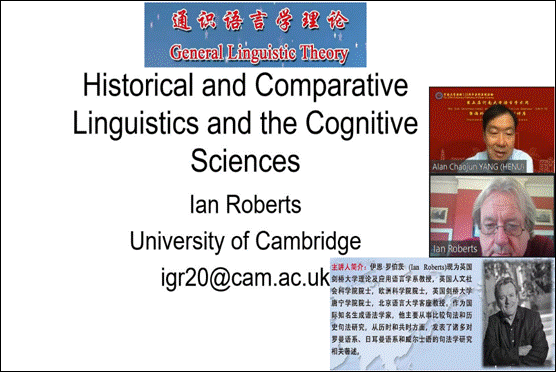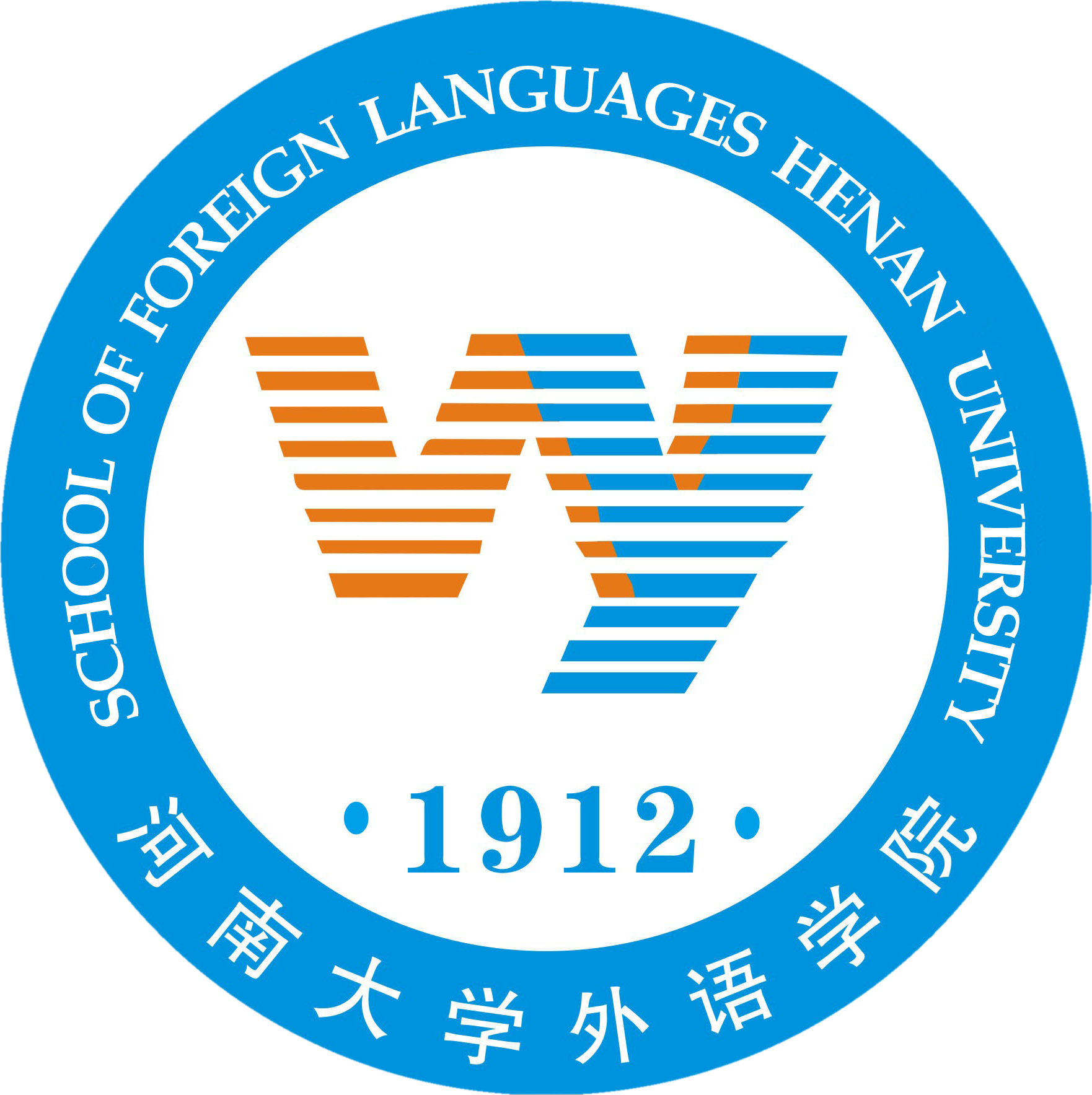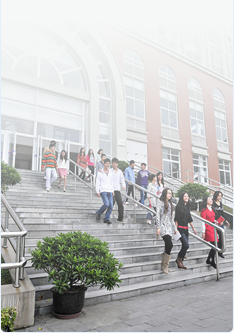

The 5th International Academic Linguistics Seminar & International Distinguished Lectures (No. 100-109) successfully kicked off on September 19 with the expectation of many teachers and students. In order to expand the international vision of teachers and students and create a good academic atmosphere, the School of Foreign Languages invited Professor Malka Rappaport Hovav of the Department of Linguistics of the Hebrew University of Israel and Professor Ian Roberts of the Department of Theoretical Applied Linguistics of the University of Cambridge, UK. Their lecture series are titled “Lexicalization Patterns” and “General Linguistic Theories”. This series of lectures was held on the Zoom platform and the Tencent conference platform respectively, and more than 480 teachers and students from well-known universities at home and abroad paid extensive attention and enthusiastically participated. At the beginning of the lectures, Professor Yang Chaojun, Dean of the School of Foreign Languages, gave a welcome speech, and briefly introduced the educational experience, research fields and academic achievements of the two professors with sincere thanks.
Malka Rappaport Hovav (PhD, Department of Linguistics and Philosophy, MIT) is Professor of Linguistics at the Hebrew University of Israel, Director of the Center for "Language, Logic and Cognition", and founder of the Israel Association for Theoretical Linguistics (IATL). people. Her research areas focus on the study of the interface between vocabulary and syntax, including non-accusative, complement, causal alternation, dative alternation, and lexicalization patterns. The five lectures on “Lexicalization Model” are her first lecture series in mainland China. The title of the first lecture of this session is “Introduction to the interface between lexicon and syntax: Introduction to the relation between lexicon and syntax: multiple patterns of argument expression and variation across languages”. In this lecture, Professor Malka Rappaport Hovav discussed the related theories of lexical and syntactic interface research, pointing out that verbs not only have lexicalized meanings, but also have non-lexicalized meanings in more cases. English is rich in such constructions but many other languages are far more constrained in constructions which “augment” the basic event structure associated with the verb. Prof. Malka Rappaport Hovav finally provided a unified explanation for the polysemy of verbs.
Ian Roberts is currently a professor at the Department of Theoretical and Applied Linguistics at the University of Cambridge, UK, a member of the British Academy of Humanities and Social Sciences, a member of the European Academy of Sciences, a member of Downing College, Cambridge University, UK, and a visiting professor at Beijing Language and Culture University. As an internationally renowned generative grammarian, he is mainly engaged in the study of comparative syntax and historical syntax. From the perspective of diachronism and synchronicity, he has published many works on the syntax of Romance languages, Germanic languages and Welsh languages. The title of the first lecture is “Modern Historical and Comparative Linguistics and Cognitive Science”. In this lecture, Professor Ian Roberts first pointed out that historical and comparative linguistics are definitely the core of cognitive science. Subsequently, Professor Ian Roberts discusses modern cognitive science, traditional and modern historical linguistics, comparative linguistics, and introduces a reflection on the history of linguistics, finally concluding that not only is contemporary generative linguistics not "overshadowed" (as Boden 2007 suggested in herHistory of Cognitive Science), it actually offers a new synthesis of ideas that brings together two ancient traditions in linguistics.
Prof. Ian Roberts, Prof. Malka Rappaport Hovav, and their love of academics and profound knowledge have impressed the students from other colleges who attended the lectures online and actively interacted with experts. Everyone said that they have benefited a lot and are looking forward to the next lectures this week.
Since its launch in 2019, our “International Distinguished Lectures” has successfully held 99 overseas high-end lectures, and an average of more than 10 internationally renowned experts and scholars have been invited to hold more than 30 academic lectures every year, involving English, Russian, Japanese, German, French and other languages. After the outbreak of the coronavirus pandemic in 2020, our Schoolof Foreign Languages immediately updated the lectures’ delivering method, innovated its ways, continued to carry out online international academic activities, and continuously enhanced the influence of School of Foreign Languages, which has received good response. In 2022, our School of Foreign Languages will continue to strengthen its international work and hold more high-level distinguished international academic activities to welcome the 110thanniversary of Henan University with excellent results.

